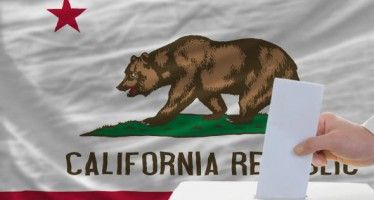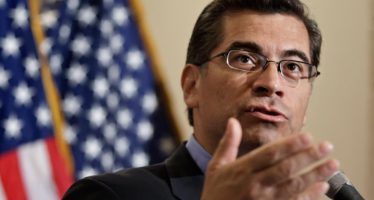State meets water conservation goals as drought lingers
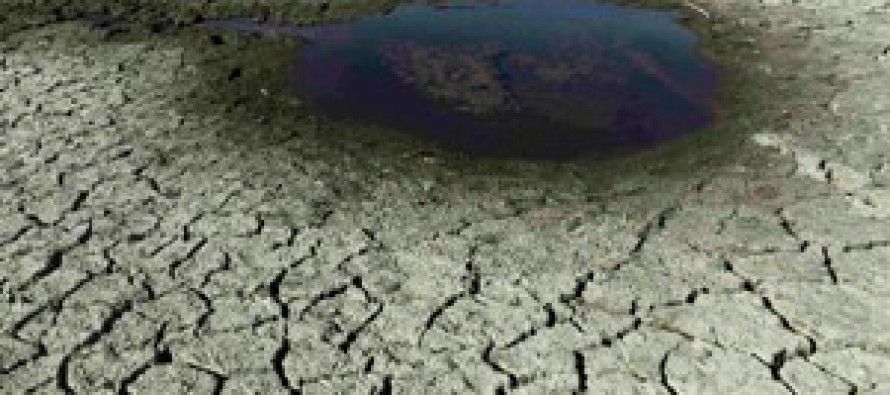
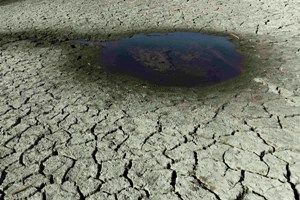 Californians are conserving water, but the historic drought still lingers.
Californians are conserving water, but the historic drought still lingers.
The state posted its best numbers in December, with statewide water conservation increasing 22 percent, according to the State Water Resources Control Board. By comparison, state water officials said conservation by roughly 400 water agencies was up only 10 percent in November.
The good water conservation numbers were largely due to an early December downpour, which brought an average of 2.5 inches of rain to the parched landscape. In the first three weeks of December, Sacramento enjoyed 13 rainy days, according to News 10.
“This was a wet December in most of the state, and people got the message not to water on top of the rain – that is good news,” State Water Board Chair Felicia Marcus said in a press release. “Our challenge will be to keep outdoor irrigation to a minimum as we move into the warmer spring months.”
Gov. Jerry Brown: No drought sound-byte
At a Friday press conference, Gov. Jerry Brown declined to back mandatory water restriction and urged Californians to continue voluntary efforts to conserve water.
 “Even though it’s starting to rain, unfortunately, there’s not a sound-byte or a glib sentence that can put all this together,” Brown told reporters. “California is facing a very severe drought.”
“Even though it’s starting to rain, unfortunately, there’s not a sound-byte or a glib sentence that can put all this together,” Brown told reporters. “California is facing a very severe drought.”
Last summer, the state began tracking water savings by large retail suppliers. Since then, California has conserved more than 134 billion gallons of water compared with the previous year. Water officials say that is enough to supply 1.8 million California residents with water for a full year.
The good news from December, however, was matched by equally disappointing news in January, when California experienced one of the driest months on record. The state remains on track for a fourth consecutive dry year.
In February, the pendulum appears to be swinging back to more rain. This past weekend, the “Pineapple Express” drenched the Pacific Northwest. Reported NBC News, the storm drenched “Northern and Central California with up to 3 inches of rain through Monday morning, and accompanying winds could produce small tornadoes in the region.”
According to the National Weather Service, the atmospheric river of rain called the “Pineapple Express” occurs “from a ribbon of moist air moving across the Pacific Ocean.”
ACWA analyzing water use data
The state’s fluctuating rainfall is creating work for the Association of California Water Agencies, a coalition of 430 public agencies responsible for 90 percent of the water delivered to cities, farms and businesses in California. The association is working with state water officials to review the state’s water data and emergency drought regulations, which are scheduled to expire in April. Officials will meet next month to consider extending those regulations.
“We were pleased about December, but obviously, January was pretty worrisome,” Dave Bolland, a special projects manager with the Association of California Water Agencies, told the San Jose Mercury News. “It’s obvious at this point that the drought emergency is still with us.”
In December, the Central Coast reported the greatest water conservation in the state, decreasing its water use by 29 percent compared to the previous year. According to the newly released data, the San Francisco Bay Area’s water use decreased by 21.6 percent in December, while Sacramento’s water use declined by 21.4 percent.
“CA is doing its part to #SaveOurWater, but the drought is far from over,” Brown tweeted this week. “Careful stewardship & conservation must be our way of life.”
Congressional delegation more active on water policy
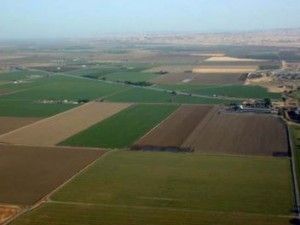 California’s ongoing drought has encouraged the state’s congressional delegation to take a more active role in crafting water policy. This week, the U.S. Senate and House of Representatives hosted a joint hearing on how state and local governments would cope with a proposal to amend the federal Clean Water Act.
California’s ongoing drought has encouraged the state’s congressional delegation to take a more active role in crafting water policy. This week, the U.S. Senate and House of Representatives hosted a joint hearing on how state and local governments would cope with a proposal to amend the federal Clean Water Act.
“We must do all we can to protect these water resources, because this is all we have,” Rep. Grace Napolitano, D-El Monte, said in a statement about the proposed regulatory changes. “When the water dries up, our way of life and our local economies will dry up with it.”
More action from the federal government is unlikely to be welcomed by farmers in the Central Valley, who routinely point to state and federal regulations for making the state’s water problems worse.
“The most severe restrictions are often triggered when water is abundant,” lamented the Families Protecting the Valley, a coalition of farmers, agriculture providers and community leaders in the San Joaquin Valley. “When storms came through in mid-December, water agencies worked closely with fish and wildlife agencies to comply with endangered species regulations while trying to capture some water for people, businesses and farms. Despite these efforts, we still lost nearly 200,000 acre-feet of water.”
Related Articles
How to run a ballot initiative campaign
The ballot measure process is simple, right? One citizen has a great idea about how to change our state. He
Krauthammer pulls plug on Obamacare at PRI Thatcher dinner
Columnist and Fox News commentator Charles Krauthammer pulled the plug on Obamacare in his keynote speech March 7 for the
Los Angeles congressman named next attorney general, musical chairs ensues
Gov. Jerry Brown on Thursday tapped Democratic Congressman Xavier Becerra to be California’s next attorney general. Becerra, who would need to

